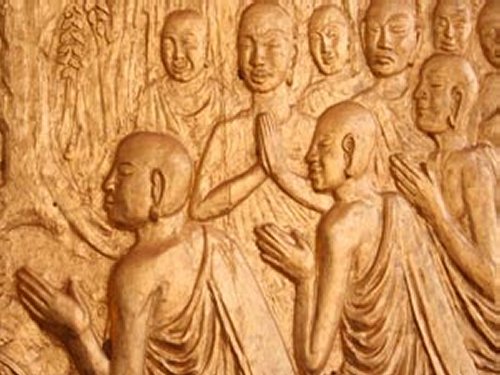Consultation On PM’s Decree On Religious Affairs
The Ministry of Home Affairs and the Ministry of Foreign Affairs organised a two day consultative workshop on the management of religions recently.
Organised with the support of the Australian Embassy in Vientiane, it examined the revision of the Prime Minister’s Decree No. 92 on the Management of Religions, running from January 23-25, in Thalath, Vientiane province.
About 70 representatives from relevant line ministries and agencies, mass organisations, social organisations and religious groups participating in the consultation process attended the workshop.
The aim of the workshop was to collect the views and opinions of various stakeholders in order to improve the legal framework of Laos that promotes and protects religious freedom.
According to a press release from the Ministry of Foreign Affairs, the Decree 92 adopted by the government in 2002 has served as the legal basis for the implementation of the constitutional provisions regarding religious activities in Laos.
It is by virtue of this decree that the Lao multi-ethnic people have enjoyed their freedom of religion or beliefs.
It has been more than a decade since the introduction of this decree and throughout the practical implementation of its various provisions it has been observed that there is room for improvement to enable Lao people of all ethnic groups to further enjoy their religious freedoms in a more conducive, effective and responsible way.
The Lao constitution and laws, including this decree, guarantee the right of the Lao multi-ethnic people to freedom of religion or beliefs. At the same time, the Lao government has always attached importance to engaging in the international legal system.
To date, of the nine core human rights treaties of the United Nations, Laos has ratified seven conventions, two optional protocols and is a signatory to one of the remaining two core conventions.
The guarantee of the freedom of religion or beliefs is among the obligations under these treaties, particularly Article 18 of the International Covenant on Civil and Political Rights, which obligates state parties including Laos to respect and promote the right to freedom of religion. In 2009, the UN Special Rapporteur on Freedom of Religion visited Laos at the invitation of the Lao government. During the visit, the mandate holder obtained a better understanding of the Lao government policies and laws on the promotion and protection of human rights, including the freedom of religion or beliefs.
The visit resulted in a number of recommendations for Laos to further enhance religious freedoms in the country. In 2010 Laos participated in the UN Human Rights Council Universal Periodic Review (UPR) and as a result supported 71 recommendations arising from this peer review process, which include the recommendations relating to freedom of religion or beliefs.
At the regional level, the Asean Human Rights Declaration adopted by Asean leaders in November last year in Phnom Penh enshrined the right to freedom of religion or beliefs as contained in the Universal Declaration of Human Rights, which will be realised in both the national and regional contexts.
The need to revise the decree stems from the lessons drawn in the practical implementation of the decree over the past decade, coupled with the increasing set of obligations and commitments of Laos.
It comes in order to further the promotion and protection of the freedom of religion or beliefs as well as the need to fully realise the constitutional rights of the Lao people to believe or not to belief in the new stage of national development.
The workshop was one in a series of consultations being conducted nationwide to ensure the involvement, participation and inputs of all stakeholders. A prominent feature of this workshop was the active participation of religious groups representing different faiths in Laos.
published with the permission of Vientiane Times

